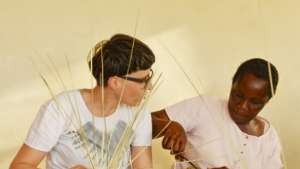Evans Wadongo is something of a national hero in Kenya. But the engineer and businessman has also garnered international attention for the innovative design of his MwangaBora solar lamp, which is helping to create a sustainable economy in rural areas. Wadongo grabbed headlines in 2010 as one of CNN’s Heroes, exposure that has led to more support from the international community.
Wadongo created his first solar lamp prototype based on experiments he conducted in his first year of university. “I decided to create a simple design for a solar lamp. I wanted something that could be fabricated within minutes by somebody who doesn’t really have any technical knowledge,” he says.
An artisan friend helped him refiine the finished appearance of the lamp, which is made primarily from recycled materials – scrap metal and solar panel offcuts. However, the LED bulbs themselves are of a high standard, as these are the heart of the lamp.
A solar powered LED lamp can eliminate many health risks, such as fire and respiratory illness caused by inhaling kerosene fumes. Even Wadongo himself suffered a deterioration of his eyesight from exposure to kerosene smoke. Furthermore, kerosene is expensive and requires constant replenishing.
Through his NGO, SDFA Kenya, Wadongo is working to broaden the impact of his sustainable light. To date, it has trained more than 1 000 economically disadvantaged youth to make the lamps, providing them with vital skills and a way to make a living. SDFA Kenya also runs micro-entrepreneurship workshops for the rural women who receive the lamps and provides support for them to channel money that would have been spent on kerosene into creating small businesses.
“Our main component is to make sure that they use the lamps as a tool to enable then to have a steady income,” says Wadongo, who has over 50 000 lamps in circulation, and plans to expand internationally soon.









